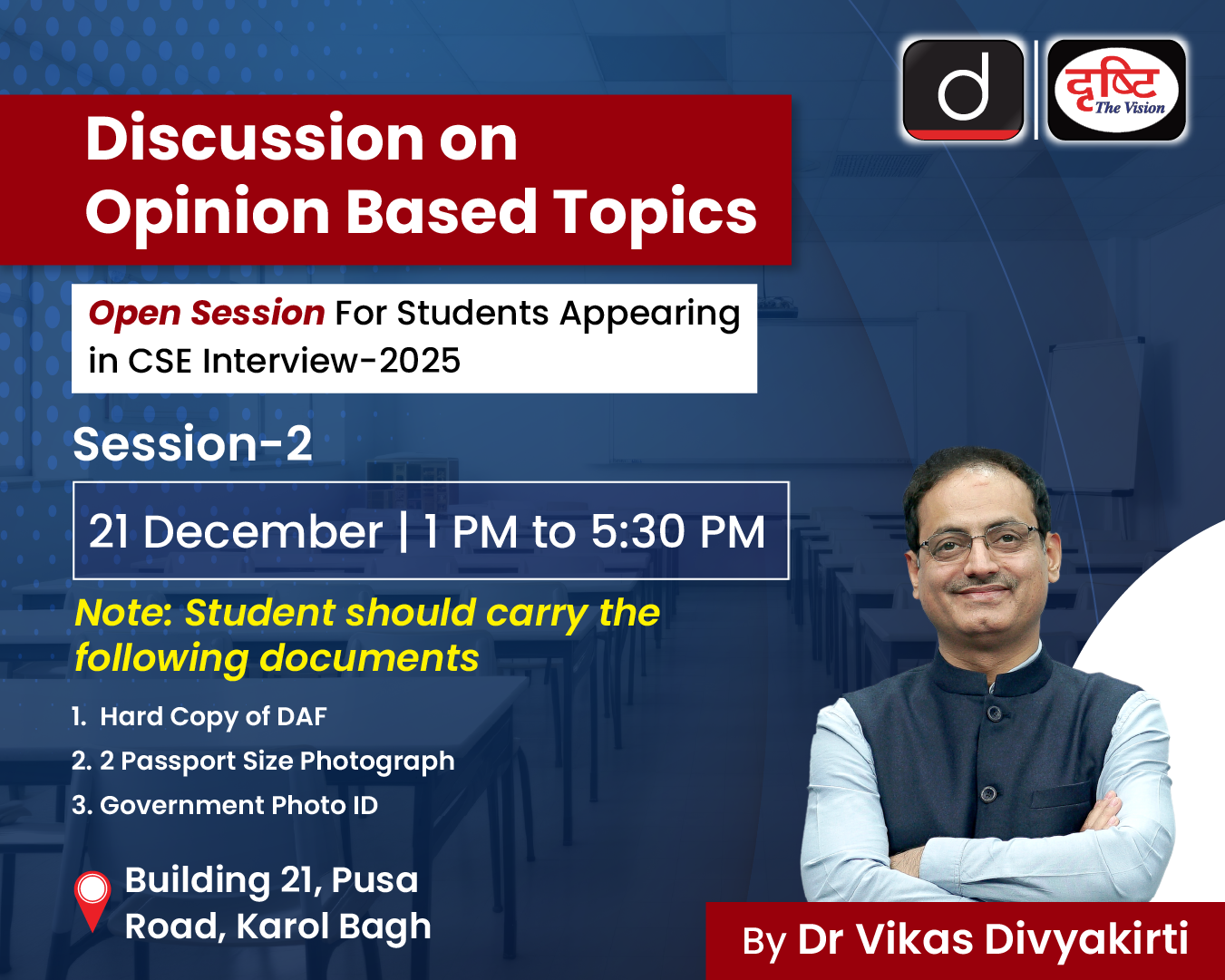- Filter By :
- Polity & Governance
- International Relations
- Social Justice
-
Q. “Fundamental duties are not made enforceable by a writ of court like the fundamental rights, but they are fundamental to the well being of society and individuals.” Examine. (250 words)
23 Jun, 2020 GS Paper 2 Polity & GovernanceApproach
- Explain fundamental duties establishing their relationship between the fundamental rights.
- Write arguments for and against whether the fundamental duties should be made enforceable.
- Substantiate your arguments with some of the examples where fundamental duties have been the basis for legislative and executive actions.
- Write a conclusion based on the assessment of the premises of your arguments.
Introduction
Fundamental Duties of the citizens of India mentioned in Article 51A of the Indian Constitution. It has been enumerated by the 42nd Amendment of the Constitution in 1976. The balancing of Fundamental rights is a constitutional necessity as every right gives rise to a corresponding duty. Besides, in a democratic setup participation of the citizens in the process of governance and nation building is a fundamental obligation.
Body
Rationale for making Fundamental Duties Enforceable
- Fills legal vacuum making them obligatory: If the existing laws are inadequate to enforce the needed discipline and behavioural change among citizens, the legislative vacuum needs to be filled. This could call for strategies such as making fundamental duties enforceable.
- In M.C. Mehta v. Union of India, the Supreme Court introduced compulsory learning of lessons on protection and improvement of the natural environment in all the educational institutions of the country as a part of Fundamental duty under Article 51-A (g).
- Enables judiciary to examine legislative reasonableness: There have been certain situations, where the Courts have been called upon to examine the reasonableness of any legislative restriction on the exercise of a freedom, the fundamental duties are of relevant consideration.
- Guide the elected representatives: The fundamental duties enjoined on citizens under Article 51-A should also guide the legislative and executive actions of elected or non-elected institutions and organisations of the citizens including the municipal bodies.
- In the case of public authorities, each and all Fundamental Duties can be enforced by suitable legislation and departmental rules of conduct. Appropriate sanctions can be provided for lapse in respect of each
- Legislative potentials like DPSP: At times, Directive Principles Of State Policy (DPSP) has taken precedence over Fundamental Rights and some of them have found their way into statute books. The judiciary has been appreciative of DPSP as they promote common good. The same yardsticks need to be made applicable to Fundamental Duties.
- Reinforce constitutional obligations: For example Article 51A(k) was introduced as a fundamental duty in 2002, along with Article 21A as a fundamental right. Through Article 51A(k) read with Article 21A, the State and the parents are made to share obligations with regard to education of the children in the following manner: by the State with free education by the parents with compulsory education.
- Promote patriotism: The Fundamental Duties are defined as the moral obligations of all citizens to help promote a spirit of patriotism and to uphold the unity of India. These duties, set out in Part IV–A of the Constitution concern individuals and the nation. Citizens are morally obligated by the Constitution to perform these duties.
Caveats in Making Fundamental Duties enforceable
- Provides opportunity to implant political propaganda : To attain vested interests under the garb of fundamental duty like protecting the culture, tampering with curriculum is facilitated. For example omitting and tampering with school curriculum.
- Redundant when suitable legislative actions are available: for example fundamental duty to protect and improve the natural environment including forests and wildlife only repeat what the existing environment protection laws prescribe for.
- Futility of legal enforcement without will and aspirations of citizens: Out of the ten clauses in Article 51A, five are positive duties and the other five are negative duties.
- Clauses (b), (d), (f), (h) and (j) require the citizens to perform these Fundamental Duties actively. It is said that by their nature, it is not practicable to enforce the Fundamental Duties and they must be left to the will and aspiration of the citizens.
- Difficulty in determining scope: Fundamental duty such as ‘to value and preserve the rich heritage of our composite culture’ leaves the scope of such duties open ended. Such ambiguity enables unscrupulous elements for moral policing. Example recent lyching by cow vigilantes.
- Voluntary obedience more suitable: Making fundamental duties may facilitate compulsory allegiance of citizenry obligations but that's not democratic. Even Gandhiji always believed in moral persuasion rather than forceful adherence.
- Lack of adequate awareness: For the proper enforcement of duties, it is necessary that it should be known to all. This should be done by a systematic and intensive education of people that is by publicity or by making it a part of education.
Conclusion
As Mahatma Gandhi said that the true source of right is duty. If we all discharge our duties, rights will not be far to seek. Enforcement of Fundamental Duties are important for building nationhood and a vibrant civil society. The provisions for enforcement of fundamental duties should be made considering the multiculturalism and pluralism of India.
To get PDF version, Please click on "Print PDF" button.
Print PDF





